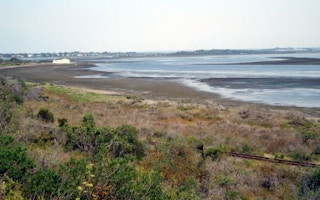Australian scientists have reconstructed the past six thousand years in estuary sedimentation records and found that changes in plant and algae abundance point to a possible undermining of these natural coastal carbon sinks.
The findings, published in Global Change Biology, show an increase in microalgae relative to seagrass in the past 60 years. This shift could diminish the ability of estuaries to mitigate climate change.
‘We have effectively gone back in time and monitored carbon capture and storage by coastal ecosystems, finding a 100-fold weakening in the ability of coastal ecosystems to sequester carbon since the time of European settlement,’ said University of Technology Sydney’s Dr Peter Macreadie.
‘This has severely hampered the ability of nature to reset the planet’s thermostat’.
The scientists collected soil cores from sites in and around Botany Bay. A chronology for the cores was determined using radiocarbon dating. Changes in plant and algae composition over time were then determined according to the change in isotopic ratio of the organic matter in the sediment.
The team’s analysis suggests the relative reduction in seagrass and increase in microalgae coincided with a time of rapid industrial expansion and increased nitrogen deposition.
These findings are critical because plants such as seagrass have a relatively large carbon sink capacity, which plays a critical role in mitigating climate change.
‘Unfortunately, this outcome is common to urbanised estuaries throughout the world, therefore the study adds further support for the inclusion of Blue Carbon habitats (seagrasses, saltmarshes, and mangroves) in greenhouse gas abatement schemes,’ said Dr Macreadie.

















